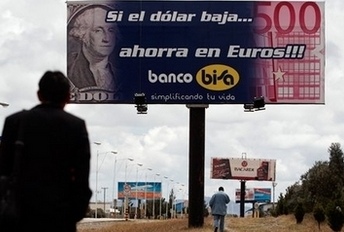Dollar's clout sinks worldwide
Updated: 2008-03-14 11:30
SAO PAULO, Brazil -- Antique store owners in lower Manhattan, ticket vendors at India's Taj Mahal and Brazilian business executives heading to China all have one thing in common these days: They don't want US dollars.
Hit by a free fall with no end in sight, the once mighty US dollar is no longer just crashing on currency markets and making life more expensive for American tourists and business people abroad; its clout is evaporating worldwide as foreign businesses and individuals turn to other currencies.
|
|
Experts say the bleak US economic forecast means it will take years for the greenback to recover its value and prestige.
Negative dollar sentiment is growing in nations where the dollar was historically accepted as equal or better than local currency - and dollar aversion is even extending to some quarters in the United States.
"Gone are the days when we used to run after dollars, holding onto them for rainy days," said Vijay Narain, a tour operator in the city of Agra where the Taj Mahal is located. "Now we prefer the euro. It gives us more riches."
In Bolivia, billboards feature George Washington's image on a $1 bill alongside a bright pink 500 euro note, encouraging savers to turn to the euro to tuck away money earned abroad or sent home in remittances.
"If the dollar's going down ... save it in Euros!!!" say the signs popping up around La Paz for Bolivia's Banco Bisa.
And in neighboring Brazil, the Confidence Cambio money-changing service was the first to start offering yuan so travelers to China no longer have to change the money into dollars first. The service is already a hit because Brazil does big business with China, and lots of Brazilians are heading to the Olympics this summer.
"Now we tell people not to take dollars when they go abroad, it's better to change it directly to the local currency," said Fabio Agostinho, one of the firm's managing partners. "If people leave here with dollars and go abroad, they lose when they exchange them. It's the same thing whether they're heading to China, Europe or even Argentina."
In Manhattan's Bowery district, Billy LeRoy, the owner of Billy's Antiques & Props, prefers payment in euros so he can stockpile the currency for his annual antique buying trip to Paris.
|
|
|
||
|
||
|
|
|
|







